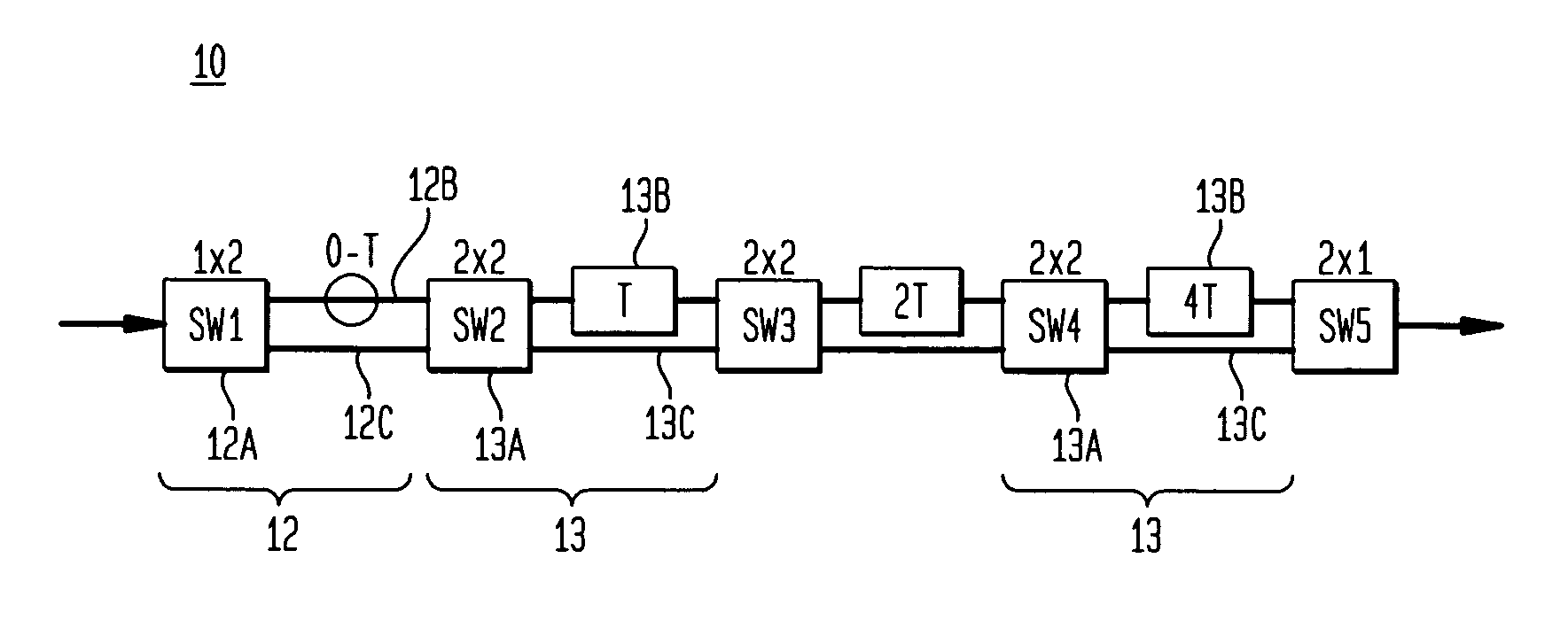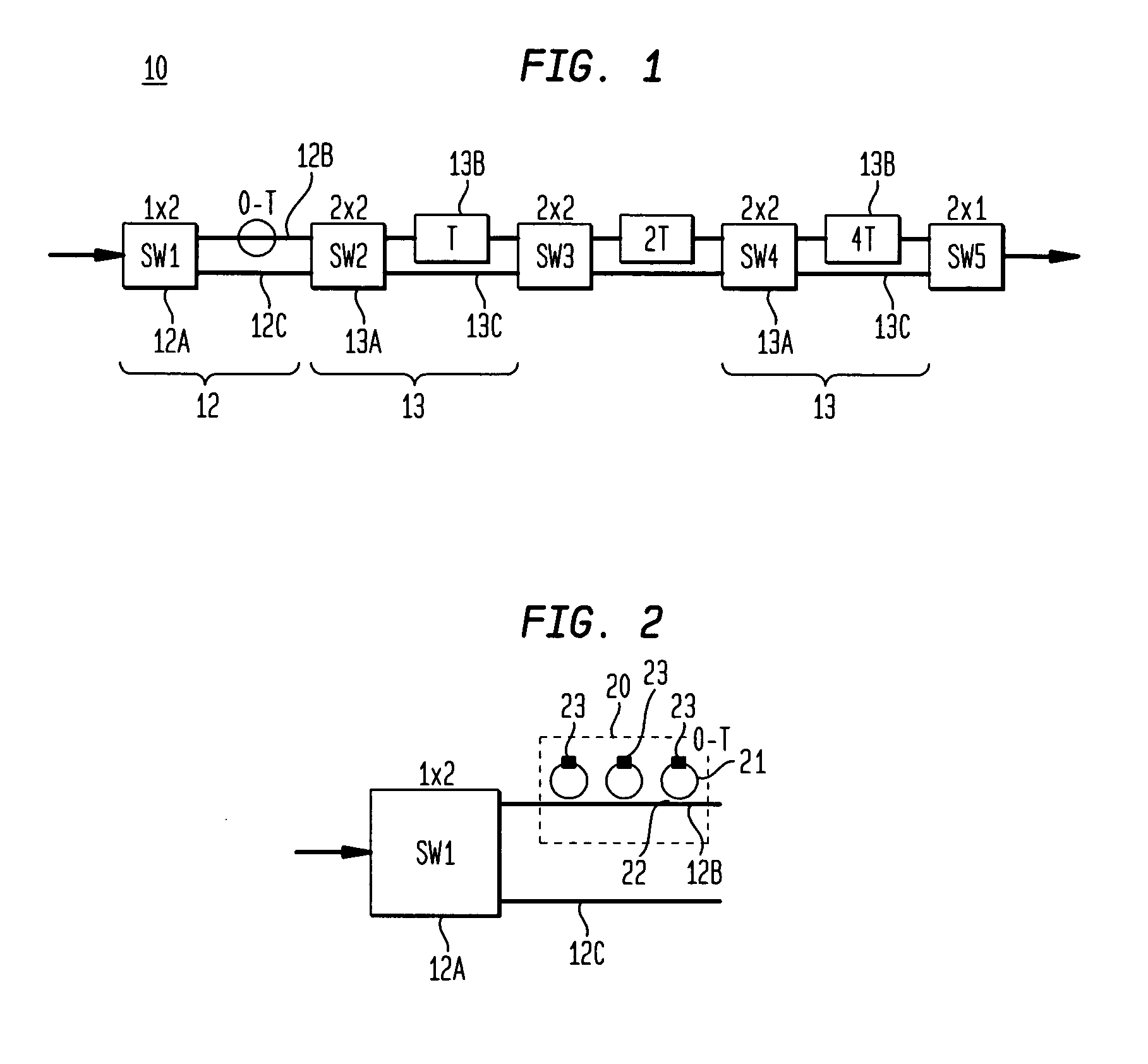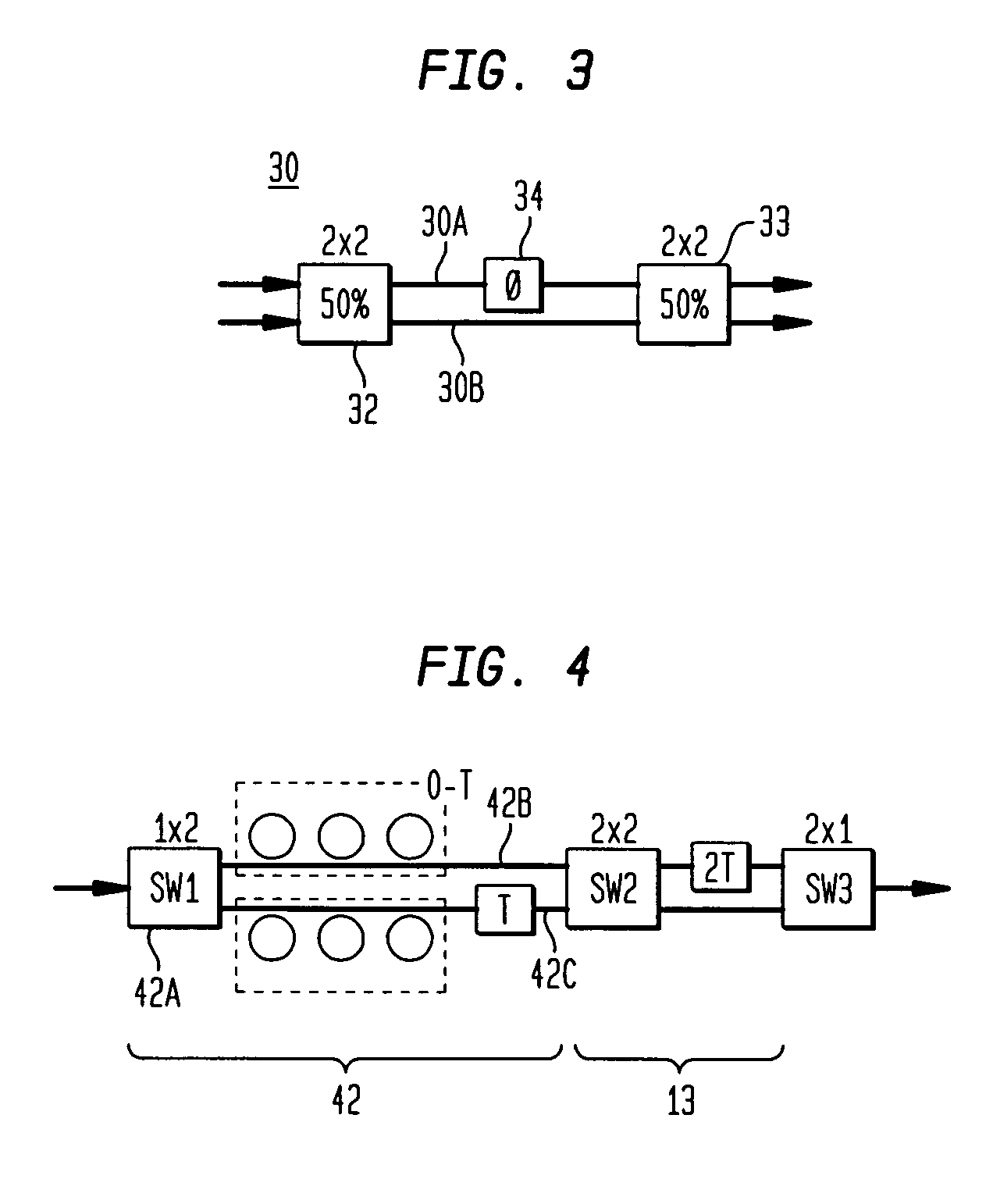Compact solid-state variable optical delay line with a large continuous tuning range
a variable and solid-state technology, applied in the field of variable optical delay lines, can solve the problems of limiting the achievable accuracy of delay time, difficult cutting fibers to a precision of millimeters, and large dynamic range of variable delay lines
- Summary
- Abstract
- Description
- Claims
- Application Information
AI Technical Summary
Problems solved by technology
Method used
Image
Examples
example 1
[0023] The layout of FIG. 1 is configured to provide a continuous delay arm APF with T=320 ps. The device thus accommodates a full tuning range of 8T or 2560 ps. Continuous tuning is achieved with the APFs by simultaneous changing two switches between equal path lengths when the APFs are at their maximum delay, after which they are tuned to their minimum delay for the next sub-range. This is the operation set forth in Table 1 where x refers to the cross port configuration and—refers to the bar port. By making two path lengths identical before switching, a coherent switch is achieved that is transparent to an incoming data signal.
[0024] This hitless switching capability is particularly well-suited to implementation in a planar waveguide platform. In glass waveguides, 100 ps corresponds to a length of 2 cm. For a bend radius of 3 mm, a delay length of 2 cm is achieved for each loop. Consequently the longest delay in this example (1280 ps) will require only 13 loops and a very small c...
PUM
 Login to View More
Login to View More Abstract
Description
Claims
Application Information
 Login to View More
Login to View More - R&D
- Intellectual Property
- Life Sciences
- Materials
- Tech Scout
- Unparalleled Data Quality
- Higher Quality Content
- 60% Fewer Hallucinations
Browse by: Latest US Patents, China's latest patents, Technical Efficacy Thesaurus, Application Domain, Technology Topic, Popular Technical Reports.
© 2025 PatSnap. All rights reserved.Legal|Privacy policy|Modern Slavery Act Transparency Statement|Sitemap|About US| Contact US: help@patsnap.com



